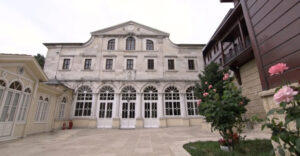There is concern about the rise of the far-right in Europe, expected to impact the composition of the next European Parliament after the June 9 elections.
Polls indicate that MEPs from far-right parties may outnumber those from the center-right EPP. However, this doesn’t mean the EPP will fall to second place, as far-right parties are unlikely to unite. This shift signifies Europe’s move to the right, influencing the new Parliament’s political tone.
Delphi: Fire preparedness exercise conducted at the archaeological site
Politico’s Poll of Polls suggests the EPP would win 170 seats if elections were held now. The ECR and ID groups could secure 144 seats together, with additional seats from AfD (16), Fidesz (10), France’s Reconquest (5), Poland’s Confederation (6), and Bulgaria’s Revival (3), totaling around 184 far-right MEPs.
Prospects for cooperation within the far-right remain uncertain. Marine Le Pen and Giorgia Meloni are exploring forming a large far-right group in the Parliament. Meloni is open to cooperation with any right-wing party, including offers from Ursula von der Leyen of the EPP. However, ECR parties exclude Viktor Orban’s Fidesz.
A unified far-right front is unlikely, but these MEPs are expected to vote against the majority, driven by national interests rather than a common agenda.
Ask me anything
Explore related questions





